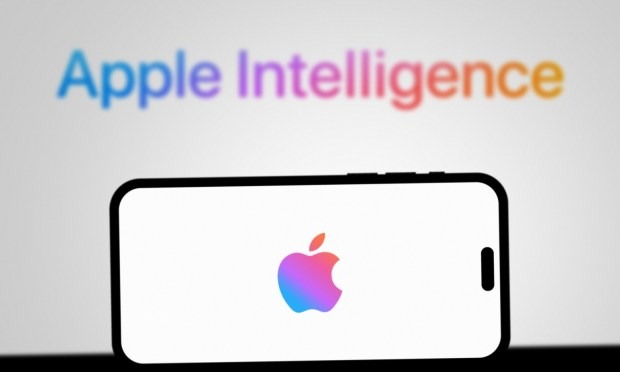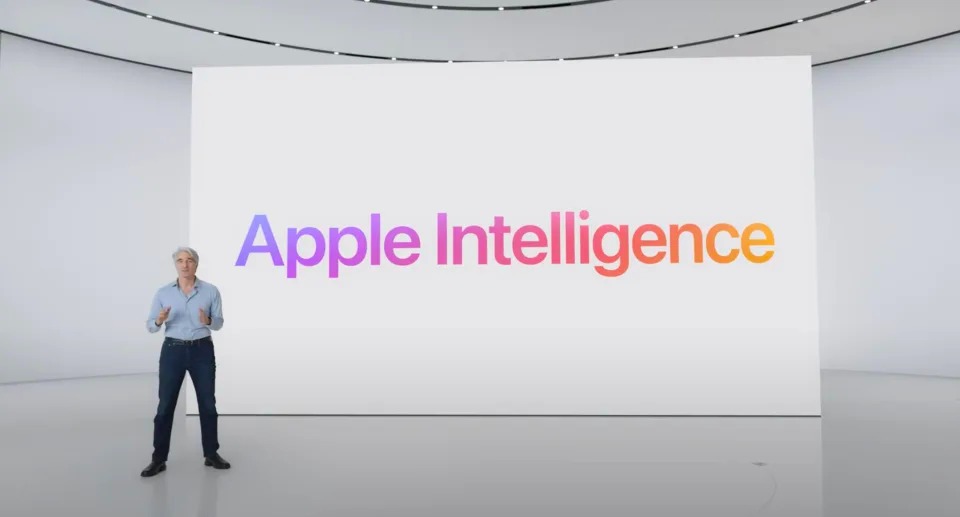Apple’s recent introduction of its AI-powered feature, Apple Intelligence, has sparked a heated debate in the artistic community. This new tool, which allows users to generate images based on text descriptions, represents a significant leap in consumer-accessible AI technology. However, it has also raised serious concerns among artists about the ethics of AI training and the protection of creative works in the digital age.

Apple Intelligence: A Double-Edged Sword of Innovation
Apple Intelligence marks Apple’s bold entry into the realm of generative AI, a technology that has been making waves across various industries. The feature’s ability to create images from textual descriptions showcases the immense potential of AI in creative processes. For users, it opens up new avenues of visual expression, potentially democratizing certain aspects of image creation.
However, the very capability that makes Apple Intelligence impressive is also at the heart of the controversy surrounding it. The ability to generate diverse, high-quality images necessitates training on a vast dataset of existing images – and therein lies the crux of artists’ concerns.
The Heart of the Matter: Data Transparency
The primary issue raised by artists is Apple’s lack of transparency regarding the data used to train Apple Intelligence. This silence has led to several pressing questions and concerns:
- Consent and Attribution: Artists are worried that their work may have been included in the training data without their knowledge or permission. This raises fundamental questions about consent in the digital age.
- Artistic Integrity: There are fears that Apple Intelligence could replicate specific artistic styles, potentially diluting the value of original works and undermining artists’ unique creative expressions.
- Derivative Works: The AI’s ability to potentially create derivative works based on existing art raises complex legal and ethical questions about ownership and copyright in AI-generated content.
These concerns reflect a broader unease in the creative community about the impact of AI on traditional artistic practices and the protection of intellectual property.
The Betrayal of Trust: Artists’ Perspective
For many artists, Apple’s approach to Apple Intelligence feels like a betrayal of trust. Apple has long positioned itself as a company that values creativity and supports artists. Many creatives have been loyal Apple customers, using the company’s hardware and software as integral tools in their artistic processes.
The lack of transparency regarding Apple Intelligence has shaken this relationship. Artists feel that Apple should be more forthcoming about its data collection and training practices, especially given the potential impact on the artistic community. This situation has led to a sense of disillusionment among some artists who previously viewed Apple as an ally in their creative endeavors.
The Broader Implications: AI Ethics and Data Ownership
The controversy surrounding Apple Intelligence is not isolated; it’s part of a larger ongoing debate about AI ethics and data ownership. As AI technologies become more prevalent and powerful, questions about the ethical use of data for training these systems are becoming increasingly urgent:
- Data Privacy: How can individuals maintain control over their personal data and creative works in an age of large-scale data collection for AI training?
- Fair Compensation: If artists’ works are used to train AI systems, should they be compensated? If so, how can this be fairly implemented?
- Transparency in AI Development: What level of transparency should be expected from tech companies regarding their AI training practices?
- Balancing Innovation and Rights: How can society foster AI innovation while protecting individual and creative rights?
These questions extend beyond just Apple and touch on fundamental issues that society will need to grapple with as AI continues to advance.
Potential Solutions and Ways Forward
Addressing the concerns raised by artists will require a multi-faceted approach:
- Increased Transparency: Tech companies like Apple could provide more detailed information about their data collection and AI training practices, including the sources of their training data.
- Opt-Out Mechanisms: Implementing systems that allow artists to opt out of having their work used for AI training could help address consent issues.
- Collaboration with Artists: Engaging with the artistic community in the development of AI tools could lead to more ethically sound practices and potentially mutually beneficial outcomes.
- Legal and Regulatory Frameworks: Developing clear legal guidelines for the use of creative works in AI training could provide a foundation for resolving many of these issues.
- Ethical AI Development Standards: The tech industry could work towards establishing industry-wide standards for ethical AI development, including guidelines for data collection and usage.
The Road Ahead: Balancing Innovation and Integrity
The controversy surrounding Apple Intelligence highlights the complex challenges at the intersection of AI, art, and ethics. As AI technologies continue to evolve, finding a balance between fostering innovation and protecting creative rights will be crucial.
For Apple, addressing these concerns transparently and collaboratively could be an opportunity to set a positive example in the industry. By engaging with artists and being more open about their AI development practices, they could potentially turn this controversy into a constructive dialogue about the future of AI in creative fields.
For artists and creators, this situation serves as a call to action to become more engaged in discussions about AI and data rights. As the primary stakeholders in this debate, their voices will be crucial in shaping policies and practices that protect creative works in the age of AI.
Conclusion: A Pivotal Moment for AI and Creativity
The debate sparked by Apple Intelligence represents a pivotal moment in the ongoing conversation about AI, creativity, and ethics. It underscores the need for greater transparency, collaboration, and ethical consideration in the development of AI technologies, especially those that intersect with creative fields.
As we move forward, it will be essential for tech companies, artists, policymakers, and the public to work together to develop frameworks that foster innovation while respecting and protecting creative rights. The resolution of these issues will play a significant role in shaping the future landscape of digital creativity and AI development.










Add Comment